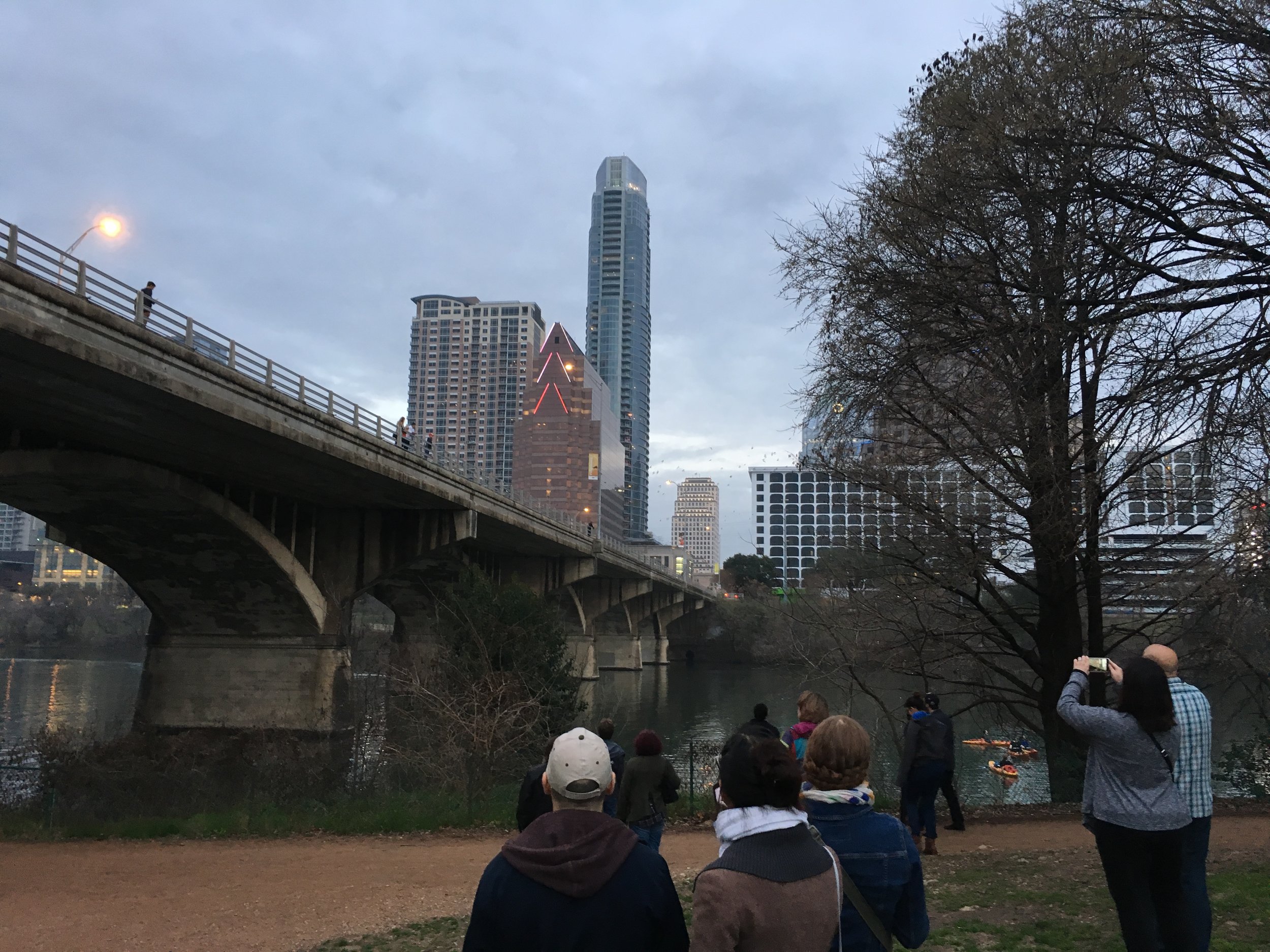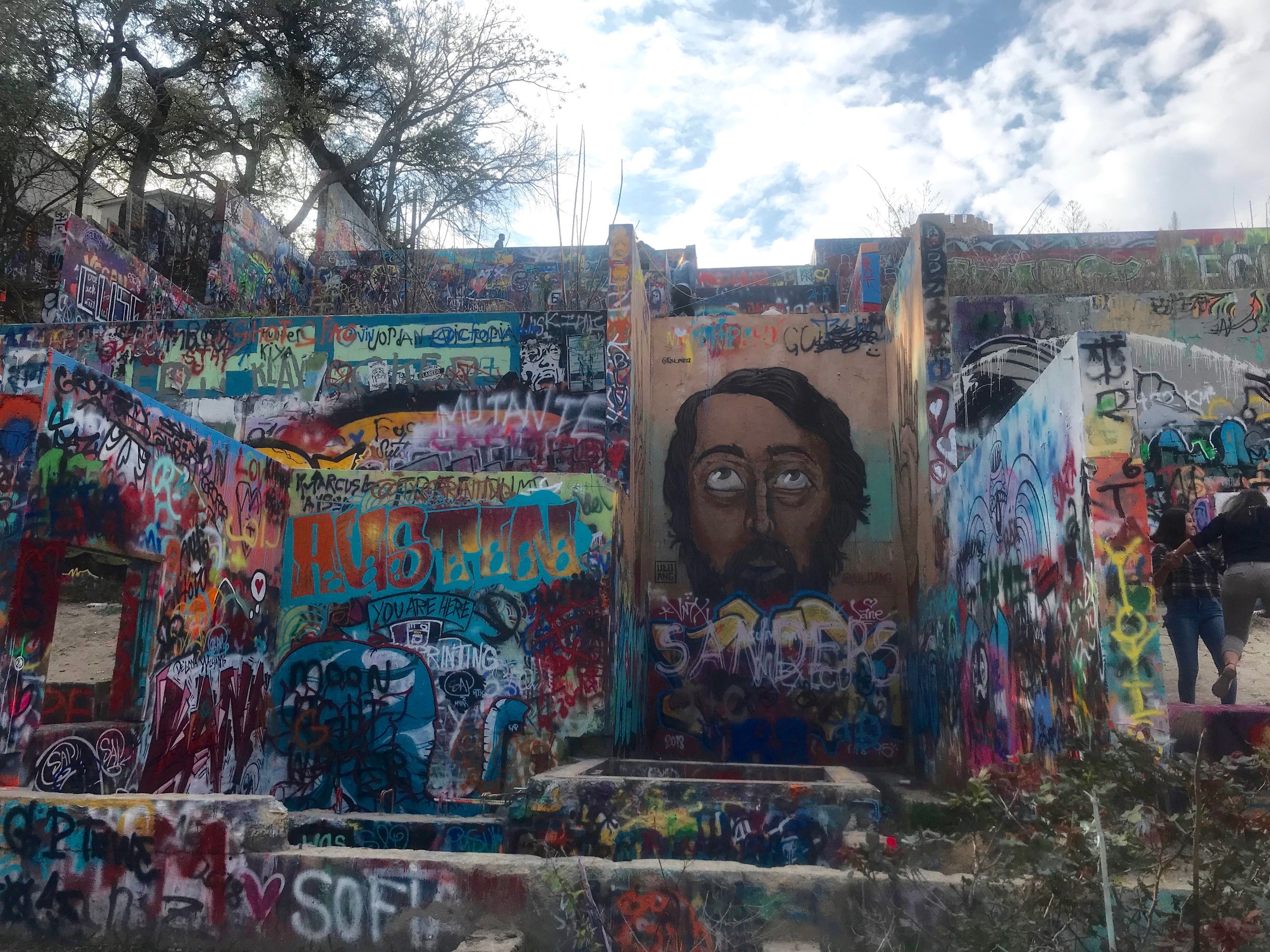Sanctuary city
Austin is proud to be ‘weird’
By Rick Holmes
March 9, 2018
Austin - When they rebuilt the Congress Avenue Bridge here in 1980, a strange thing happened.
The new expansion joints that run the length of the bridge turned out to be the perfect size and shape for the Mexican free-tailed bat. The bats, displaced from other habitats, discovered these perfect niches, first in a trickle, then by the thousands.
At first there was alarm. Lots of people are biased against bats and afraid of them.
“Mass fear in the air as bats invade Austin,” read one headline. The city declared a public health crisis and began planning a war on the Mexican free-tailed bat.
But science, education and the advocacy of Merlin Tuttle came to the bats’ rescue. Tuttle moved his organization, Bat Conservation International, to Austin and began explaining to Austinites that bats are good neighbors. For one thing, they eat between 10,000 and 30,000 pounds of insects every night.
Eventually, Austin came to embrace its bats. It now boasts of hosting the world’s largest urban bat colony. Every night at sunset, people gather on the banks of Lady Bird Lake and in kayaks beneath the bridge to watch as many as 1.5 million bats drop out of their tiny apartments and fly off into the night.
Bats aren’t the only living things that have found new niches in Austin. People have been coming here for hundreds of years in search of opportunity and acceptance.
In the 1970s, Willie Nelson, Waylon Jennings and other “outlaw” country musicians came to Austin to escape Nashville’s slickness. Along with “Austin City Limits,” the PBS show launched in 1976, they put Austin on the map for musicians. Today, the city calls itself the “live music capital of the world.”
Around that time, Austin saw a migration of hippies. Thanks to the University of Texas, it’s long been one of the state’s youngest cities. With the hippie migration, Austin became not just young, but – a word heard a lot around here – “weird.”
Other migrations followed, and today Austin is booming. The hippie town has grown into a hip city, a magnet for free-thinking, educated millennials. Every March, it teems with energy and people, as South by Southwest fills every venue with concerts and conferences on, well, you-name-it. SXSW, as it’s known, has put Austin on the leading edge of music, media and technology.
Corporations have migrated to Austin as well, attracted by its quality of life and its young, educated workforce. New buildings crowd the skyline; huge apartment complexes spread deeper into the suburbs. Old-timers have a new slogan: “Keep Austin Weird.”
The weird survives, in places like Graffiti Park, a concrete wasteland on the side of a hill which people are encouraged to decorate with spray paint. It’s in the funky businesses south of the Congress Street Bridge. It’s in people’s attitudes and their politics, which are decidedly left of center, especially for central Texas.
Austin’s got all the problems that come with prosperity. Everyone complains about traffic. Gentrification is pricing long-time residents out of neighborhoods where they’ve lived for generations. Aggressive panhandlers work downtown streets. Homeless people fill the sidewalks on 8th Street, where the city provides portable bathrooms and volunteers hand out sandwiches. Austin takes care of its own, or at least it tries.
Many of these newcomers, like the bats, are Mexican. There are neighborhoods where you hear more Spanish than English. For some people, that triggers fears and bias. But Austin people, especially those who came here by choice, take pride in their community’s diversity.
Some find it baffling that pollsters tend to find the strongest anti-immigrant sentiment in rural areas where there are relatively few immigrants. But it’s no mystery that immigration is more popular in places where more recent immigrants live. Once you’ve welcomed immigrants into your community - once your kids go to school with their kids, once you’ve come to rely on them at work, to get to know them as people - you’re less likely to want to see them treated badly. Deporting them, breaking up families and locking good people up seems cruel, no matter what the law says.
So Austin has become a sanctuary city for people as well as bats. Under its policy, police will only turn undocumented immigrants over to police if they are charged with one of four violent crimes. Last year the State Legislature, which meets in Austin, declared such policies illegal. It has withheld money in state grants to Austin, and the two sides are battling it out in court.
Texas’ governor and its GOP-controlled Legislature consider Austin’s hospitality to foreign newcomers an outrage. Most city officials here consider it a virtue, and if that sounds weird, in Austin that makes it good.
Rick Holmes can be reached at rick@rickholmes.net. You can follow his journey at www.rickholmes.net. Like him on Facebook at Holmes & Co, on follow him on Twitter @HolmesAndCo.


